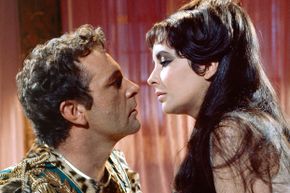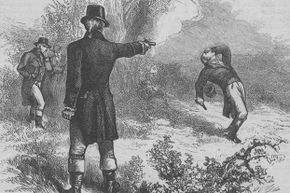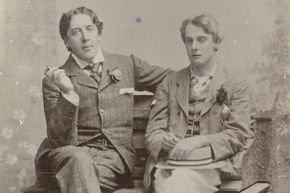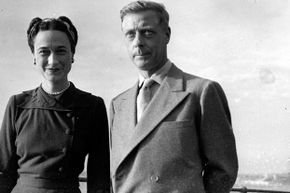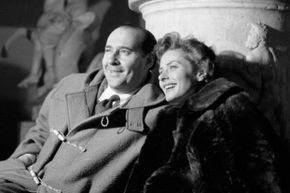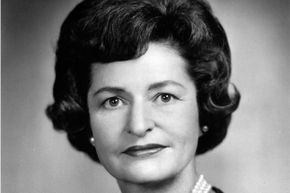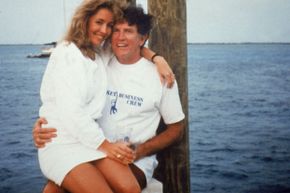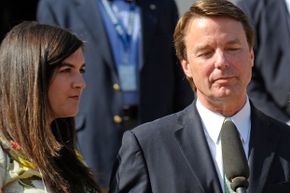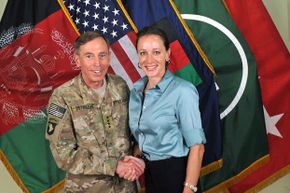The Petraeus Scandal could be considered by far the most confusing and elusive of all, thanks to so many of its players being either spies whose identities we're not allowed to know, or bizarre hangers-on whose lives themselves seem like cover stories for possible spies.
Paula Broadwell, a West Point grad with two kids and a Lt. Colonel in the Army Reserve, first met Gen. David Petraeus at Harvard in 2006, and eventually co-wrote his official biography, "All In: The Education of General David Petraeus," which was published in January 2012. By the time Petraeus was named CIA director in July 2011, they were lovers. They communicated using a free webmail account: One would save a draft message, and the other would read and delete it [source: CNN].
In May, a Tampa party planner named Jill Kelley filed an FBI complaint regarding threatening, jealous e-mails from a user calling herself "KelleyPatrol," whom the FBI pinpointed as being Broadwell. That's how they discovered the affair and webmail situation -- and also thousands of messages, some deemed "inappropriate," between Kelley and the current U.S. commander in Afghanistan, Gen. John R. Allen [source: Miller and Horowitz]. Kelley's cancer charity also came under scrutiny and her military connections were shot, making her career a second casualty of this mess.
So what was "KelleyPatrol" so upset about? Petraeus and Allen (talk about friends in high places) got themselves involved in Kelley's twin sister's custody battle, which she eventually lost. Somewhere along the line, Broadwell got the idea that Petraeus had taken Kelley as a second mistress, and she couldn't handle it. When the FBI called her in for questioning, Broadwell copped to the affair -- but not to the classified documents they'd later find on her computer.
Kelley's friend in the FBI, Frederick Humphries II – who, in another bizarre twist in the tale had sent Kelley shirtless photos of himself -- repeatedly intervened to make sure the bureau stayed on top of the "KelleyPatrol" harassment, although it wasn't his case. In late October, he called two Republican U.S. representatives, Dave Reichert and Eric Cantor, to allege that the Department of Justice (DOJ) was covering up the case. In turn, he came under investigation, but he wasn't entirely off-base: The director of the FBI and U.S. Attorney General Eric Holder decided to wait until after the 2012 elections to do anything with their information, and so -- after a long summer -- on the evening of Election Day (6 Nov 2012), they sent the FBI deputy director to inform the director of National Intelligence what was going on.
Next day, everybody knew. The DOJ informed White House counsel about everything, and Petraeus tendered his resignation to President Obama. After 24 hours of review, the resignation was official: David Petraeus, a four-star general, was no longer the head of the CIA, thanks to a jealous girlfriend's cyberstalking and a seriously skeevy amount of fraternizing at the highest levels of military, intelligence and government power.
What's intriguing about this story is the way the infidelity and sex that usually sell these stories seemed to take a backseat to our curiosity and concerns about power, privacy and the military.
The press focused attention on what the players' actions uncover about the entrenched structures we trust with our well-being every day. It's likely the story will continue to unfold in the years to come, as more of the circumstances are finally revealed.

